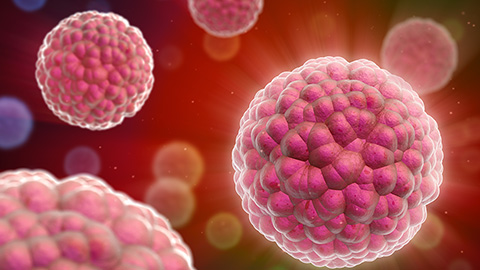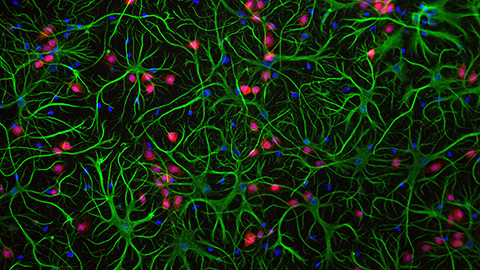
Stressed out? The cancer playbook may help
We often associate the concept of stress with deadlines, emergencies, traffic or hardships. For those who study biological and biochemical processes of disease in cell and organismal models, the idea of stress adaptation is recognized as one mechanism by which malignant and nonmalignant cells survive and thrive within environments that, at times, are hostile.
Are there ways that we think about environmental stress adaptations at an organismal level that may help scientists develop new perspectives on combatting cancer to improve patient outcomes? Indeed, cancer cells may even engage in molecular decision-making activities that differentiate between fight-or-flight responses in the face of environmental stress.
Submit an abstract
Abstract submission begins Sept. 14. If you submit by Oct. 12, you'll get a decision by Nov. 1. The regular submission deadline is Nov. 30. See the categories.
This session will consider the mechanisms by which cancer cells adapt to intrinsic and extrinsic stressors and how defining these adaptative mechanisms may lead to improved treatment strategies. Topics will include nutrient access/use, aging, subcellular compartments, microenvironmental influences and tissue reprogramming.
Keywords: Cancer biology, molecular crosstalk, biochemical signaling, tissue homeostasis, aging, subcellular transport, local and global adaptations, tumor microenvironment.
Who should attend: Cancer researchers, cell biologists and biochemists interested in considering how aging, biochemistry and multi-scale adaptations cooperate to shape the stress landscapes of tumors.
Theme song: “Stressed Out” by A Tribe Called Quest
This session is powered by cortisol and catecholamines.

Stress adaptations in tumor progression
Jonathan Kelber (chair), Baylor University
Elda Grabocka, Thomas Jefferson University
Christina Towers, Salk Institute for Biological Studies
Mark LaBarge, Beckman Research Institute of City of Hope
Enjoy reading ASBMB Today?
Become a member to receive the print edition four times a year and the digital edition monthly.
Learn moreGet the latest from ASBMB Today
Enter your email address, and we’ll send you a weekly email with recent articles, interviews and more.
Latest in Science
Science highlights or most popular articles

Building a career in nutrition across continents
Driven by past women in science, Kazi Sarjana Safain left Bangladesh and pursued a scientific career in the U.S.

Avoiding common figure errors in manuscript submissions
The three figure issues most often flagged during JBC’s data integrity review are background signal errors, image reuse and undeclared splicing errors. Learn how to avoid these and prevent mistakes that could impede publication.

Ragweed compound thwarts aggressive bladder and breast cancers
Scientists from the University of Michigan reveal the mechanism of action of ambrosin, a compound from ragweed, selectively attacks advanced bladder and breast cancer cells in cell-based models, highlighting its potential to treat advanced tumors.

Lipid-lowering therapies could help treat IBD
Genetic evidence shows that drugs that reduce cholesterol or triglyceride levels can either raise or lower inflammatory bowel disease risk by altering gut microbes and immune signaling.

Key regulator of cholesterol protects against Alzheimer’s disease
A new study identifies oxysterol-binding protein-related protein 6 as a central controller of brain cholesterol balance, with protective effects against Alzheimer’s-related neurodegeneration.

From humble beginnings to unlocking lysosomal secrets
Monther Abu–Remaileh will receive the ASBMB’s 2026 Walter A. Shaw Young Investigator Award in Lipid Research at the ASBMB Annual Meeting, March 7-10 in Washington, D.C.

